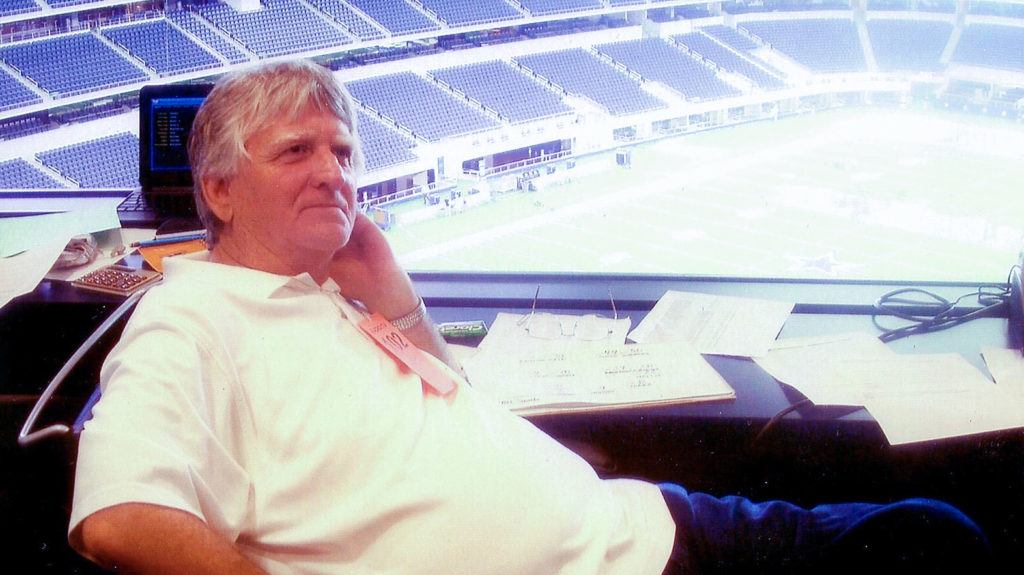"Out of the Box" with Dallas Huston: A Deep Dive into the Heart of Texas Sports Consciousness
When it comes to discussing Texas sports, few online voices resonate as profoundly as that of Dallas Huston. In his latest column titled “Out of the Box,” he shifts the narrative towards feelings of disconnection and disappointment overarching the sports landscape in Texas. This article takes a closer exploration of Huston’s sentiments, detailing the cultural and emotional ties that Texans hold towards their sporting institutions.
The Reluctant Sports Fan
Huston opens with a refreshingly honest admission—he isn’t an ardent sports fan. This perspective promptly sets him apart in a world where sports often dominate conversations. His candidness invites readers to reflect on their own relationships with sports, especially in a state like Texas, where football is practically synonymous with the state’s identity. Huston’s inclination towards an audience that may not be on the edge of their seats during game days establishes a tranquil yet thought-provoking atmosphere.
A Texan’s Love-Hate Relationship with Sports
One of the striking themes in Huston’s writing is the emotional rollercoaster that fans experience. He captures the essence of what it means to bear the highs and lows of a Texas sports fan. The highs can be euphoric—think of the Texas Longhorns’ historic moments, the Dallas Cowboys’ legendary plays, or even the Houston Rockets’ championship triumphs. Yet, alongside those exhilarating highs lurk the bitter lows—match failures, devastating injuries, and management fiascos. This narrative compels readers to examine their own experiences as they navigate through intense highs and lows.
Reflecting on the University of Texas
In his column, Huston delves into the recent performances of the University of Texas sports teams. There’s an inherent sense of nostalgia within his words, echoing the rich tradition and fierce pride that envelops the Longhorns’ legacy. However, this nostalgia is juxtaposed against frustration stemming from unmet expectations and sporadic underperformance. Huston observes how the passionate fan base’s anticipation often turns into disillusionment when results fail to match fervent hopes. This friction speaks to a larger issue of loyalty and the inherent vulnerability associated with being a devoted fan.
The Broader Cultural Implications
Texas is not just a geographical behemoth; it is a cultural powerhouse with a distinctly unique identity. Sports are woven into the fabric of Texas culture, and Huston’s contemplations intersect with discussions on regional pride, community, and identity. The sports teams represent far more than just entertainment; they often serve as a communal bond, an avenue through which Texans unite. This correlation highlights the disappointment felt not merely for the teams’ performances but for the way those performances reflect on communal spirit.
The Quest for Authenticity
Another intriguing angle Huston explores is the quest for authenticity in sports fandom. In a world where media narratives often shape perceptions, Huston encourages a return to grassroots appreciation for the sport itself, beyond the glitz and glamour. This part of his writing resonates deeply, reminding readers that, at the heart of it all, sports are about passion, community, and shared experiences. It’s an invitation to reconnect with the core values that initially drove their love for sports, independent of corporate sponsorships and media hype.
Challenging the Status Quo
Huston’s commentary sprinkles in a sense of rebelliousness as he prompts Texans to question their unwavering loyalty to teams that may disappoint time and again. This challenging of the status quo serves as a call to action. How do fans redefine their loyalty? What does it mean to support a team in times of struggle? He invites readers to carve out their distinct identity as fans—one that aligns with personal values and genuine experiences rather than adherence to conventional fandom dictated by the media.
Conversations in Sports
Finally, one cannot overlook the conversational style Huston adopts in his writing. It fosters an engaging dialogue with readers, encouraging their active participation. His reflections don’t just stop at lamenting Texas sports’ missteps; instead, he sparks discussion around what comes next. "Out of the Box" embodies a space for cathartic exchange, fostering a shared journey through the trials and tribulations of being a Texas sports fan. By inviting thoughts and stories from his audience, Huston cultivates a community bound by sports—a community that can find solace and strength in their shared experiences.
In a world where sports often feel like an isolated realm of play and competition, Dallas Huston’s "Out of the Box" emerges as a reflective touchpoint. It underscores the intertwined existence of community, identity, and passion in Texas sports, resonating deeply with its audience while championing a call for authenticity amidst the chaos.
